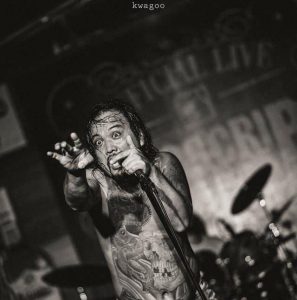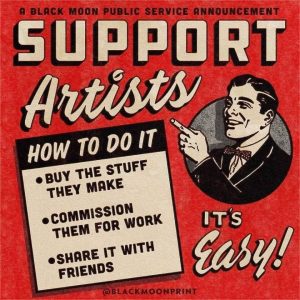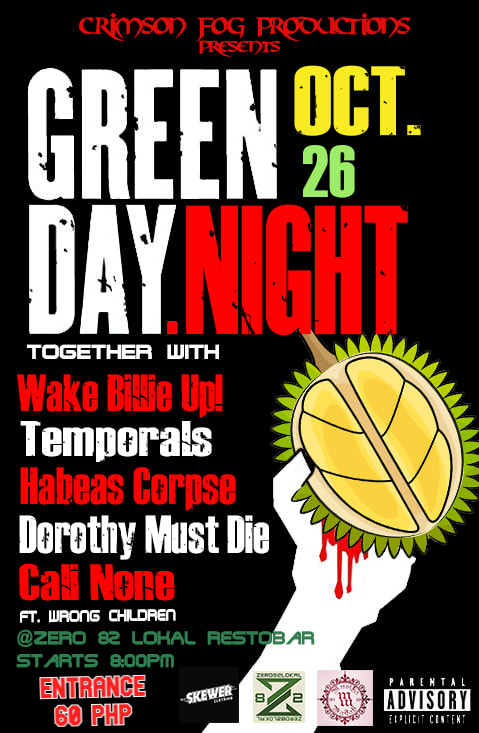How To Be A Good Musician And Performer
As an Amazon Associate, I earn from qualifying purchases. That means I earn commissions from my sponsored links or I make money when readers (you) purchase items through my links. Your purchase allows me to continue working as a stay-at-home dad who moonlights as a farmer and a musician. Needless to say, this post contains affiliate links.
How do you achieve the right balance between a good musician and performer?

I just had a conversation with a good friend and a respected local musician about my views on what would make the Davao Music Scene better. Now, before I get into the finer points about objectivity and the debate over technical proficiency over showmanship, let me say this: I’m just one of the people trying my best to help in whatever way I can to promote the local scene.
And because I’ve put myself out there, my views on the local scene are going to be subject to scrutiny. My views won’t be the same as others. Some may agree, some won’t. I’ve learned long ago that dropping the ego brings better things.
Here are some of the things I’d like to share with you on how to be a good musician and performer.
Technical Proficiency Is A Requirement
Perhaps this is the biggest point that we agree on. As a serious musician, you should aspire to always be the best.
This is where practice comes in. Set aside at least an hour a day to practice. At the cost of sounding old, I’ve been practicing for 25 years now. When I was younger, I would put in 4 to 6 hours just practicing scales and increasing my speed.
I started with the bass. As a joke, Dominic (Former AcidRadio bassist) and I switched instruments and we found out we liked our new roles. So we had to transfer what we learned over to our new positions.
I would watch my friends execute a certain scale, memorize it secretly and rush home to try it out. I’d go on until my fingers bled or I passed out from exhaustion.
I even remember doing 2 weeks just learning how to do dive bombs with a whammy bar. And then I bought a Fender Stratocaster specifically for that because Ibanez guitars where intimidating for me at that time. I learned how to play a 7 string guitar just so I could play in a death metal band.
At 21, knowing full well that being a self-taught musician was a bit limiting, I enrolled in Yamaha and took up Classical guitar and focused on Chord theory.
This is when I realized music isn’t all about speed. Speed can be used as an icing on top. Rhythm is key to great music and the metronome is your friend.
Fretboard mastery is key to becoming a good musician. Become accustomed to your instrument well enough that you don’t have to look at your fingers all the time while executing a complicated run.
Keep a library of go to riffs and licks in your head for jam situations. Or just bring a cheat book around so you can glance at it every now and then.
You don’t have to be fast. You just have to be good at what you do.
All of these things you can do if you put in the time and effort to practice. No pain, no gain.
Keep practicing. You’ll eventually get it.
Open Your Mind, Drop The Ego And Don’t Stop Learning, Don’t Stop Listening
To this day, I continue to read books, learn new scales, practice alone and rehearse with my band. My phone is chock full of riffs that I plan to sew together and make songs with. When I hear something interesting I immediately try to remember it as best as I can and see if I can learn how to translate it over to guitar.
Even a simple overheard conversation is chock full of notes. Yes, I’m a nerd.
There are so many things out there that you can learn from different genres. It could come from a Swedish death metal band or a busker playing the ukulele.
Music is everywhere.
Be a student of life.
Drop the ego.
Learn something new every day.
You can’t call yourself a musician if you’re not serious about perfecting your craft.
Be a musician.
A real one.
Play Nice With Others
One of my most ambitious dreams was to be just like Steve Vai. He had the look, the chops and the musical ability of a God.
Sadly, I am not as gifted as he is.
So, I have to work in a band atmosphere with others. That requires a different level of musicianship, EQ and personality. Thank God for being breast-fed.
I’ve always believed in surrounding yourself with the best people to help you improve. That’s why all of the members in AcidRadius are hand-picked. Not just for technical proficiency but also for personality.

Mitch, our bassist and youngest member in the band actually helps revitalize us with his eagerness and drive to give the best performance onstage.
Glenn, stoic and a bit brooding, is more content showing us that he is a guitarist with very few equals in the local scene.
Our most recent member, Felix, has proven that he is more than just a good drummer. He’s also a good songwriter.
We’re not a perfect band though. We have our differences on and offstage. But together, we are an unstoppable force.
We owe it all to dropping our egos when we enter the rehearsal space. There is no room for that with us four in it. Sit in with us and you’ll see our working process. We all make suggestions, we all make adjustments. The most important thing is giving the songs we play justice and giving a good show.
Lastly, understand that everyone has different personalities.
Adjust accordingly.
Showmanship Elevates Your Performance
This is where we disagreed on. But maybe it was oversight. Or a difference of opinions and terms used. Who knows?
I mentioned some great bands in the local scene: SoundTank, Tamad Si Juan, Project Satellite, Moawh, my band AcidRadius, Nairud… God there are so many!
Check out all the great bands playing the big stages. Anyone out there playing like they’re just practicing at home in their bedroom? Nope.
Once you reach a certain level, you have to think about providing a good show. That includes showmanship.
No one goes to gig to get bored. They want to see something. Hear something. Feel something. Excitement drives crowds to attend shows.
You don’t have to jump around like monkeys though. Just move around. Everything you do with an instrument is sexy. Capitalize on that. You are a musician and performer.
If all else fails, do this: nod your head in time with the music and take a step forward or back every now and then. That always works. Do more as you get more comfortable doing it onstage.
- Don’t let being a good showman blind you to the fact that you still need to be good with your instrument. Again, be a musician. A real one.
Dress The Part
Dressing the part is key to showing a bit of solidarity onstage. You can dress up in whatever you want. You can portray yourself in whatever manner you wish just dress the part.
If you’re going onstage wearing slippers, don’t do it if everyone else is wearing shoes. That’s just disrespectful to your bandmates and the crowd.
Wear something that will make you stand out onstage and just bring a set of dry clothes for offstage purposes.
Wear something with a purpose. If you’re a musician and performer going for the grunge look, make sure everyone is onboard. Don’t wear shorts and a colorful floral shirt if you’re playing in a doom metal band. Don’t have spiked bracers on if you’re playing in a pop band. You’ll raise a few eyebrows but the initial shock will wear off once people realize it’s just a cheap gimmick.
Think images and words. Your message is more efficiently transferred over to the crowd if you dress appropriately.
Or you could just go for total shock value and go topless like Giovanni Gaite of SoundTank. His onstage antics never fail to amaze people. His voice? Unparalleled.
Check the Project Satellite guys out. Why do they have a lot of skater fans? Because they’re dressed exactly like them. And they play the music that scene loves.

Last but not least. As chaotic as they may look onstage, Tamad Si Juan still manages to have a semblance of uniformity. The secret? Dreadlocks. Kram, Choi and Jong have impressive dreads that it doesn’t matter what they wear.
Connect With Your Audience
To be a good musician and performer, you have to connect with your audience.

Tamad Si Juan, Project Satellite, Soundtank, Moawh, The Gym Boys, Spooky Serna, Cross T-26 these are just some of the bands that connect really well with crowds.
It starts with their onstage performance. Great music? Sure. These bands play great onstage. Showmanship? Fuck yeah.
No one plays in a vacuum. You need the crowd as much as they need you to entertain them. Otherwise, just go home and play in your bedroom.
Once you’re done onstage, network. Talk to people. You just made them feel something. They’re more than happy to talk to you. This is the best way to make connections.
Everyone should be your friend.
How Badly Do You Want It?
Last but not least, what’s your motivation? How do you become a well balanced musician and performer?

How badly do you want it?
Do you go home at night thinking about what your next move is?
Do you practice until your fingers bleed?
Have you cried in your sleep wishing you had more success?
How badly do you want it?
Make Your Own Songs
Music is a universal language. Like math.
When you first learn it, you’ll be copping others. But as time progresses and you learn new things, you’ll find yourself thinking of how to improve songs already written by others.
To be a good musician, and to showcase your skills, make your own songs. It doesn’t have to be complex. Four chords and the right words can move people as much as a thousand notes played in a span of seconds.
Express yourself. Make your own songs.
One of the most liberating things about being a musician is having the ability to create songs. I’ve probably written over a hundred songs. Not all of them are going to see the light of day. Some of the songs I’ve made are treated as exercises. Some find their way into other songs I’ve made. And some I just make as a goof.
In Conclusion
In conclusion, there is no clear path on how to be a good musician and performer. I can only hope that this has helped you in some way. And again, I’m open to any comments. You can leave them here or on the video posted above through Musika Wabad.
If there’s any take away I’d like you all to have, it’s this: Drop The Ego




